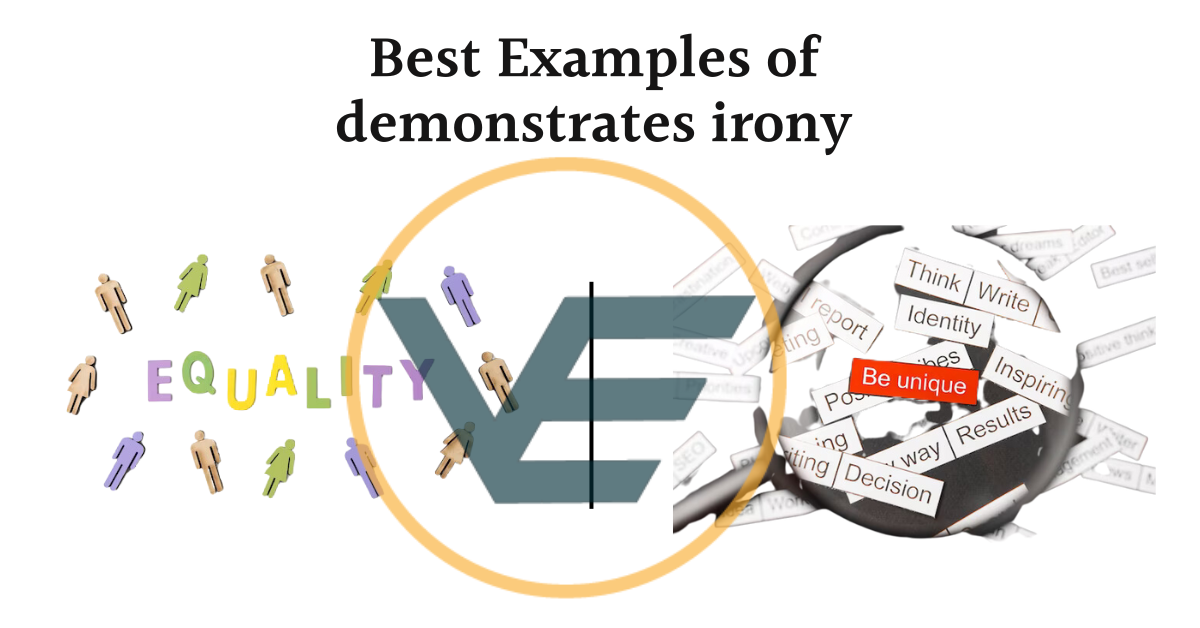“Demonstrate irony” is a phrase that requests a display or illustration of irony. Irony is a literary and rhetorical device in which there is a discrepancy between what is expected to happen or be said and what actually occurs or is conveyed. It involves a contrast between appearance and reality, often resulting in humor, sarcasm, or a deeper insight into the situation.
To “demonstrate irony,” one may provide examples of ironic situations, statements, or events that highlight the unexpected or contrary nature of the situation. These examples can be drawn from literature, movies, real-life events, or everyday conversations to showcase the diverse ways in which irony is used to create engaging and thought-provoking narratives.

10 Examples of demonstrates irony
Here are some best examples that demonstrate irony:
- Verbal Irony: This occurs when someone says something, but the intended meaning is different from the literal interpretation. For example, if it’s raining heavily, and someone sarcastically says, “Oh, what a lovely day!”
- Dramatic Irony: In this type of irony, the audience or readers know something that the characters in a story do not. It creates tension and suspense. For instance, in a horror movie, when the audience knows the killer is hiding in the closet, but the character opens it unknowingly.
- Situational Irony: This happens when there is a discrepancy between what is expected to happen and what actually occurs. For instance, a fire station burning down is an unexpected and ironic event.
- Cosmic Irony: Also known as “irony of fate,” cosmic irony implies that fate or the universe is playing a joke on someone. A person who spent their whole life promoting healthy eating but dies of a heart attack due to a genetic condition is an example.
- Socratic Irony: Named after the philosopher Socrates, it is a form of irony where the speaker feigns ignorance to provoke critical thinking and elicit truth from others.
- Historical Irony: This refers to irony found in historical events, where outcomes differ significantly from what people expected at the time. An example could be the construction of the Titanic, hailed as unsinkable, which ultimately sank on its maiden voyage.
- Irony of Understatement: When a speaker downplays a situation that is much more serious or significant, it is an irony of understatement. For instance, describing a disastrous event as “a minor inconvenience.”
- Irony of Overstatement: The opposite of understatement, this occurs when a speaker exaggerates a situation to emphasize a point, often humorously.
- Situational Irony in Literature: In literature, authors often use situational irony to create unexpected twists or surprises. For example, in William Shakespeare’s play “Romeo and Juliet,” the audience knows that Juliet is not dead, but Romeo, unaware of this, commits suicide.
- Verbal Irony in Comedy: Many comedians use verbal irony to deliver humorous punchlines, making the audience laugh by saying something contrary to the obvious meaning.
Irony adds depth and complexity to storytelling, humor, and communication. It challenges our perceptions and brings a unique perspective to various situations, making it a powerful literary and rhetorical device.

